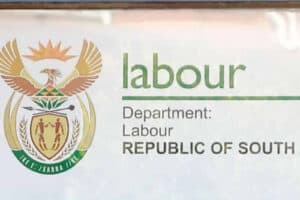After two rounds, Sidi Ould Tah leads with over 48% of total votes and 68% African support, inching closer to the AfDB’s top post.

The race to become Africa’s next “super banker” ends on Thursday, with four candidates, including one woman, still in contention to succeed Nigeria’s Akinwumi Adesina as head of the African Development Bank.
In 2015 it took six rounds of voting to elect Adesina as president of the AfDB, which was founded in 1964 and now has 81 members, including 54 African nations.
Five candidates started on Thursday, with Zambian economist Samuel Munzele Maimbo in the lead after the first round with 40.41 percent of votes, ahead of Mauritania’s former economy minister Sidi Ould Tah on 33.21 percent.
Senegal’s Amadou Hott was third with 17.62 percent, followed by South African former AfDB vice president Bajabulile Swazi Tshabalala on 8.24 percent.
The Chadian former governor of the Bank of Central African States, Abbas Mahamat Tolli, dropped out of the contest after getting 0.52 percent of votes.
ALSO READ: Running a R5-a-month bank account is probably not profitable for big banks …
The election is looking like a two-horse race between the top two contenders, who must secure both a majority of votes from all member countries and a majority of votes from African nations.
Maimbo obtained 26.57 percent of African votes in the first round while Tah secured 47.03 percent.
The weight of each shareholder state is determined by the extent of its capital contribution to the bank.
As such, the five largest African contributors — Nigeria, Egypt, Algeria, South Africa and Morocco — will be especially courted, with the United States and Japan the largest non-regional contributors.
As such, alliance-building is seen as key to secure the prestigious post.
ALSO READ: Digital bank Tyme Group gets unicorn status
Five priorities
Based in Ivory Coast’s economic capital Abidjan, the AfDB is one of the world’s largest multilateral development banks and is funded by member subscriptions, loans raised on global markets as well as repayments and income from loans.
But Adesina’s successor will immediately face a disrupted international economic environment, notably due to announcements from the US Trump administration.
Beyond tariffs, the AfDB is also facing the threat of losing 500 million dollars in US funding for its projects to support low income countries on the continent.
All candidates are promising to make the AfDB even more effective to transform Africa, continuing Adesina’s five priorities to light up, feed, industrialise, integrate and improve quality of life.
“I am proud of the legacy we are leaving behind for… my successor, for the bank and for Africa,” the outgoing president said in a speech on Tuesday.
ALSO READ: Bank data shows people run out of money long before month end
“We have built a world-class financial institution that will continue to advance Africa’s position within a rapidly changing global development and geopolitical environment,” he added.
Adesina said 565 million people had benefited from AfDB projects during his decade in charge.
Major projects include support for the construction of the Gabal El Asfar wastewater treatment plant in Egypt — the largest in Africa.
The bank also helped finance a bridge connecting Senegal and the Gambia, expanded the port of Lome in Togo and supported sanitation projects in Lesotho and access to electricity in Kenya, he said.
From 2015 to this year, the bank’s capital more than tripled from $93 billion to $318 billion, he added.
NOW READ: The dangers of government interference in banking
– By: © Agence France-Presse






